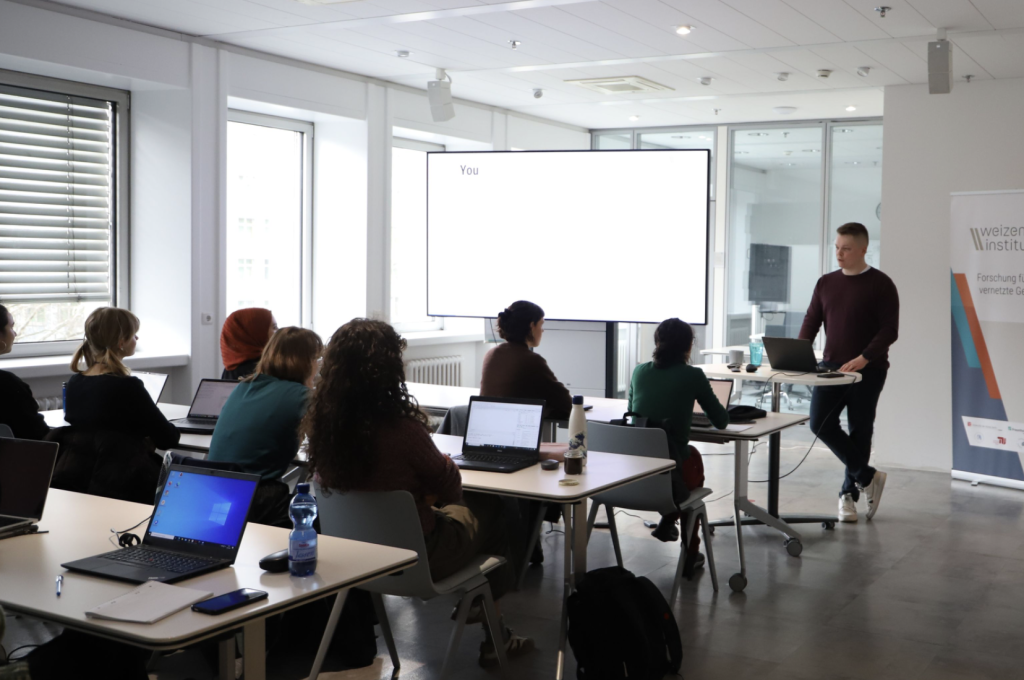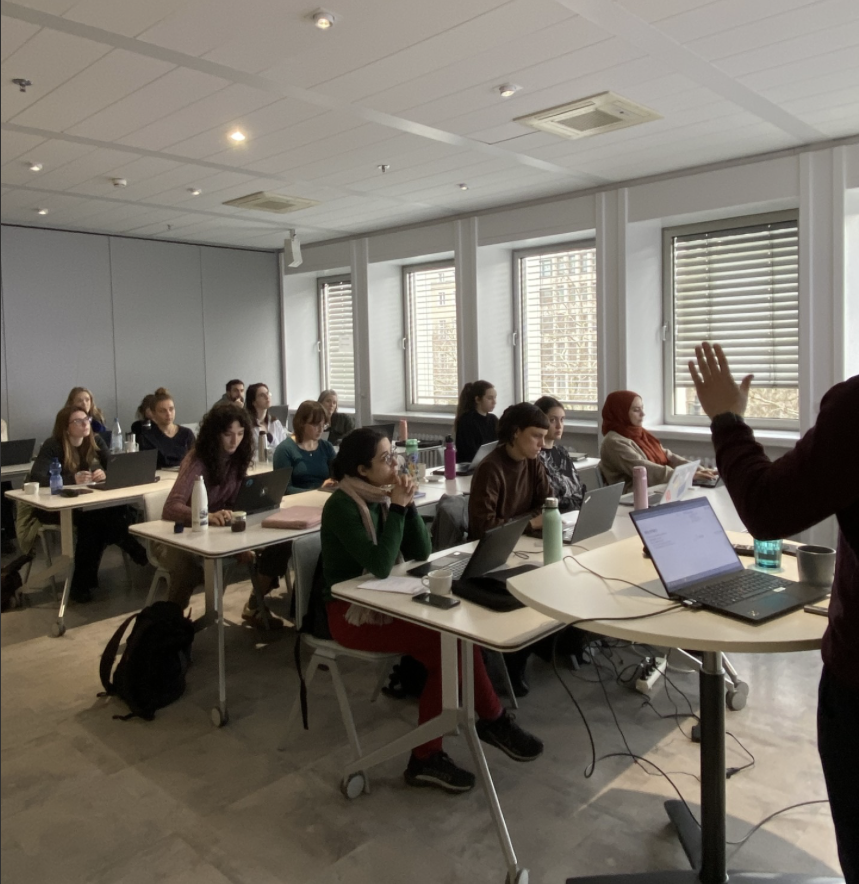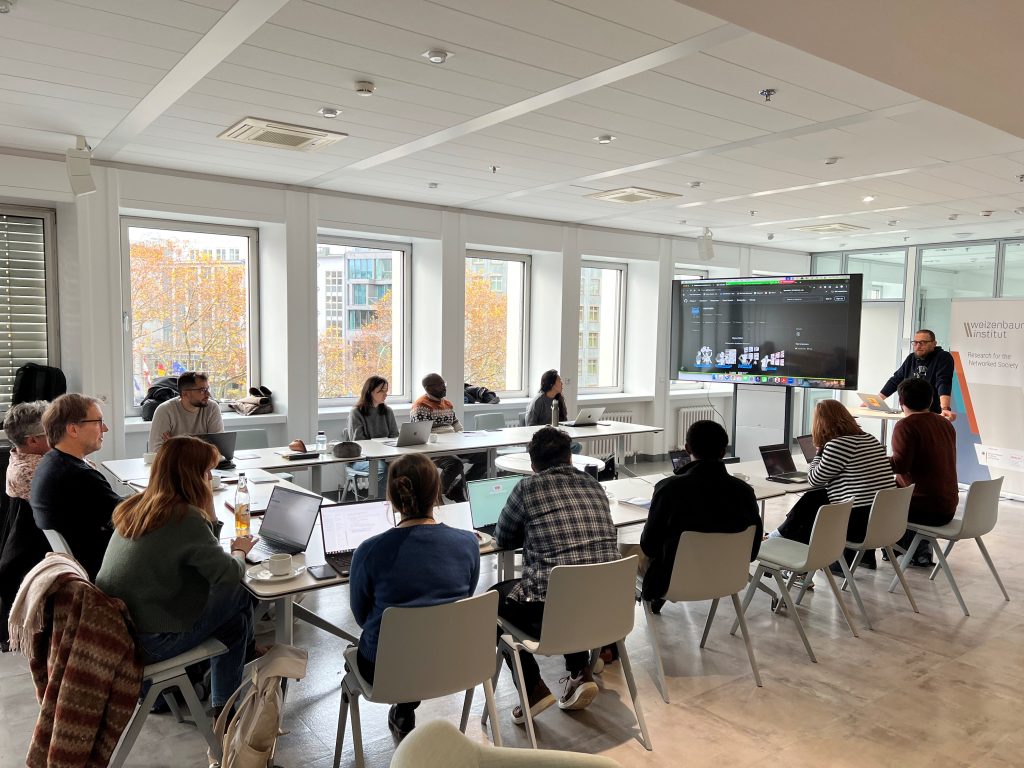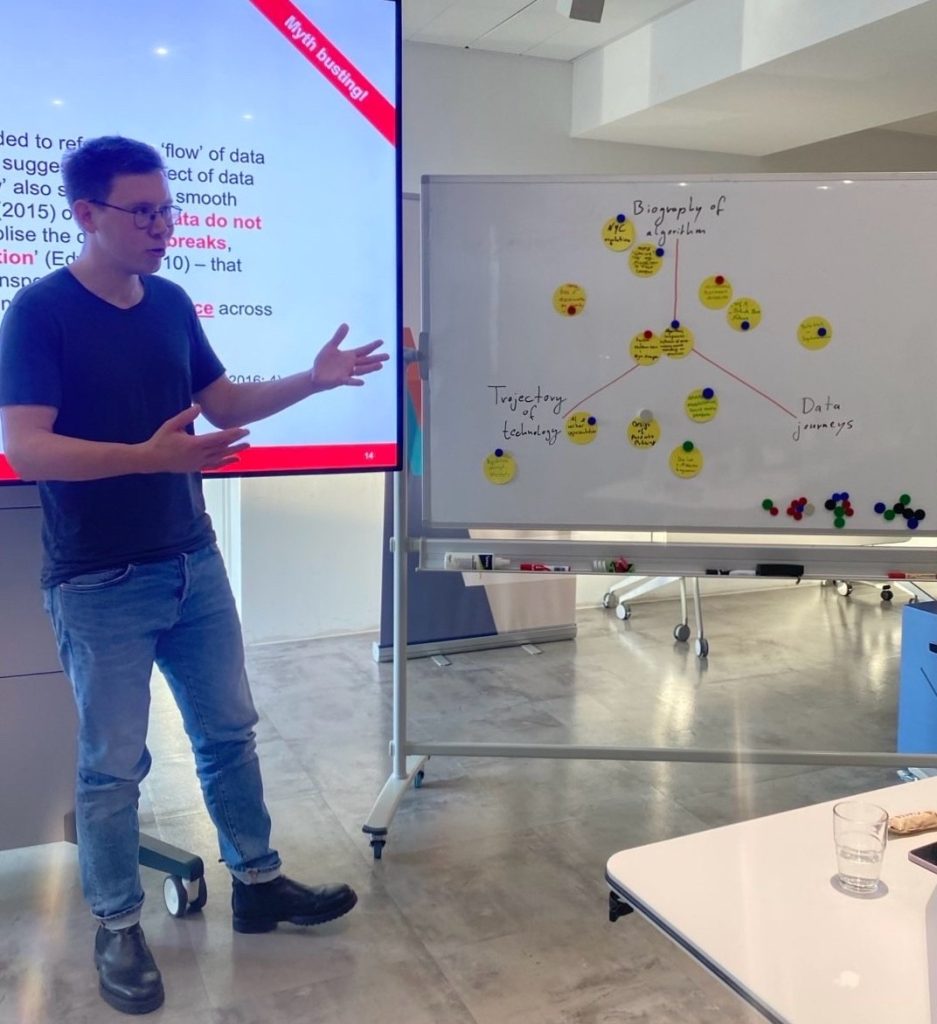On December 4th, 2025, Dr. Ansgar Hudde led an online workshop on Scientific Data Visualization for the Methods Lab, examining the principles, possibilities, and responsibilities involved in communicating data effectively. He opened by highlighting the influence of visualizations in scientific research and how design choices can carry subtle, persuasive, and even political messages. Dr. Hudde encouraged participants to consider what makes a graph clear and meaningful, noting that sketching ideas on paper can be a valuable first step in the design process.
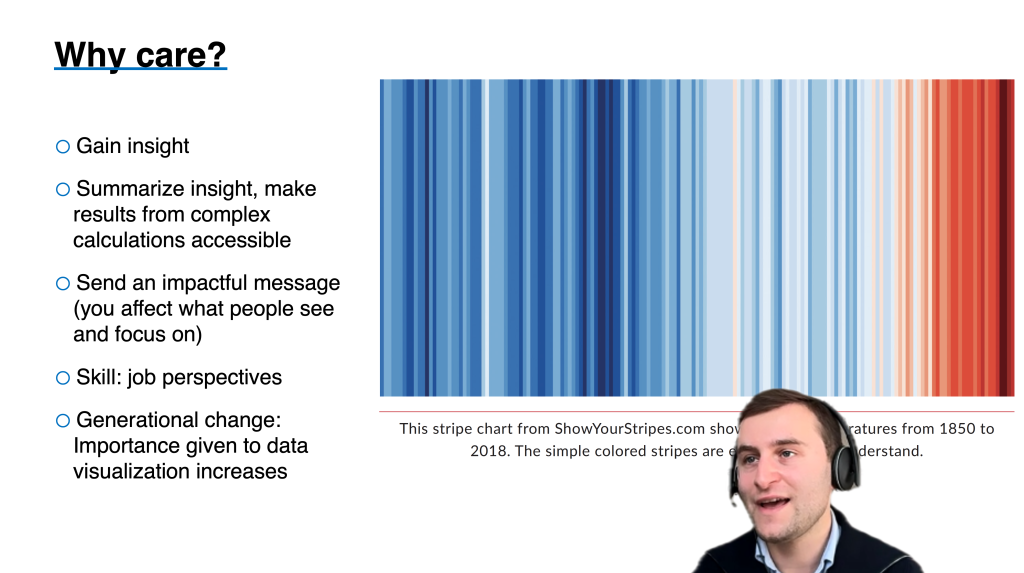
He then walked the group through a wide range of published figures to show how design affects interpretation. Participants shared their perspectives as he highlighted the need to balance informativeness, accessibility, and visual appeal. Together, they examined examples where unclear axes, inconsistent fonts, vertical text, or poor color choices hindered comprehension, as well as examples where alignment, labeling, and intentional color palettes made complex information easy to understand.
Key principles surfaced throughout the session, including consistent fonts, intuitive scales, embedded labels that reduce clutter, and mindful decisions about emphasizing detail versus simplicity. Dr. Hudde also discussed technical considerations such as smoothing noisy data, using jittering to show distributions, selecting appropriate graph types, and avoiding three dimensional forms or style choices that add complexity without improving understanding. He reminded participants that visualization is never neutral, especially in maps, where choices about scale, labeling, and color strongly shape interpretation.
The second half of the workshop was interactive. Participants submitted their own graphs, explained their context, and received practical feedback from Dr. Hudde and fellow attendees. Discussions focused on choosing accessible color palettes, adjusting axes and titles for clarity, modifying label angles, and simplifying overly complex designs. Participants also raised questions about visualizing Likert scales, presenting regression results, and ensuring figures remain interpretable in grayscale. The group briefly discussed software options, and Dr. Hudde recommended Stata, R, and Python, while noting that consistency within one’s analytic environment matters most.
By the end of the workshop, attendees had refined their figures and deepened their understanding of how intentional design choices enhance interpretability, clarity, and the responsible communication of research.
